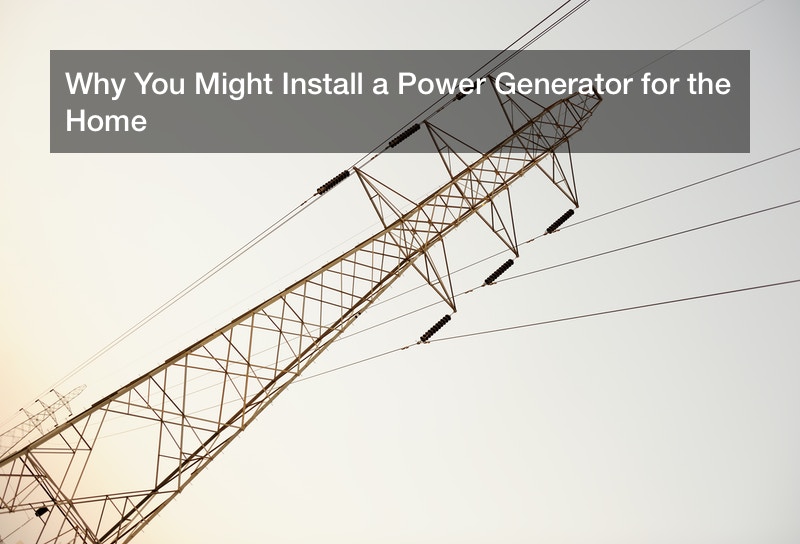
Humanity has always needed power for work and production, and for much of history, that power came from human and animal labor. In the 1800s, steam power and electricity changed all that, and many new machines and power plants transformed industry and society itself. Today, electricity is easily taken for granted in the developed world, and even in the developing world, rapid progress is being made to bring power to poor communities. Across South America, Africa, Southern Asia, and more, many communities have gotten running electricity for the first time, and many power sources are now clean energy, such as solar panels and wind farms. Even in Sub-Saharan Africa, many solar panel arrays are being built to introduce electricity all over the continent.
But what about when that power fails? No power plant is fool-proof, and sometimes, power lines may be damaged due to extremes of weather or simply mechanical failure. Should this happen, a house or entire community may find itself without power, and power outages may range from just a few seconds to many days. A lack of electricity is more than inconvenient; it may cause very real problems, so generator installers may be hired to set up whole house generators and emergency generators to keep power flowing. These expert generator installers may set up any number of generator models depending on the client’s preferences or their power needs, and generator installation may come as a real relief. When is it time to hire generator installers to set up some standby generators? And what is there to know about running electricity in general?
Americans and Power
Electricity is extremely important in developed nations such as the United States, and many statistics and studies track American usage of power. That, and records also track how often and power failures happen, and what the consequences might be. Power failures have become more common since the 1980s, and federal data shows that the American electric grid now loses power 285% more often than back in 1984. In the first six months of the year 2014, for example, 130 different grid outages were reported, and losing power can cause some problems. A house may be unable to heat up or cool down during winter or summer, and a cold house may be unsafe to live in during very cold winters in northern states. Conversely, in very hot areas, a lack of air conditioning can even lead to heat exhaustion or even heat stroke among vulnerable Americans.
Regardless of the weather, a power outage also means that the house’s food is in danger. The refrigerator and its attached freezer rely on electricity to keep the interior chilled and therefore protect food. Without power, the contents inside may warm up unless the house itself is very cold, and that may cause good to rapidly spoil. During a power outage, a household’s members are urged to eat any food that would spoil the soonest, and check the temperature of any food item that could potentially spoil. Fridge food warmer than 40 degrees Fahrenheit should be discarded.
Putting in a Generator
The good news is that if a house loses power, then generator installers can be hired to put in a generator with enough energy output to keep the house running. But before a homeowner hires generator generator installers, the total energy need must be calculated. A smaller generator won’t be able to power everything, and a too-large generator is a waste of money. So, the homeowner can add up the rates watts of all appliances and fixtures in the house, and this may result in a number of kilowatts or even ca few megawatts in total energy needs. This is a crucial reference when looking for a generator to install. Better yet, generators are flexible, and they can be used for other applications, too, such as a tailgate party.
A good generator that’s installed properly will automatically activate when the house’s main power source shuts off, and in many cases there may be no interruption at all when transitioning from one power source to the other. Some generators are also flood proof, and this is important for a homeowner operating in flood-prone areas. They can ask generator installers for flood-resistant models specifically.

